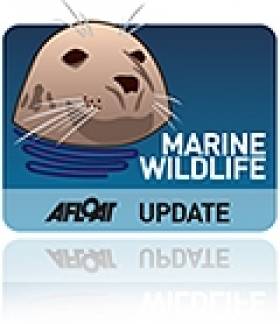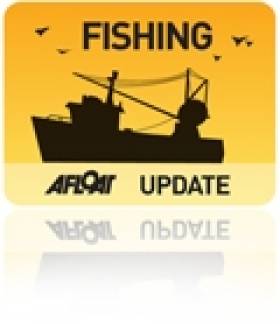Displaying items by tag: horse mussels
#MarineWildlife - Northern Ireland acted too slowly to protect endangered horse mussels in Strangford Lough, according to a new report.
The findings by the Northern Ireland Audit Office, as the News Letter reports, have damned Stormont's failure to ensure proper implementation of various plans to protect the mussel reefs since the 1980s.
As previously reported on Afloat.ie, it's not the first time the NI government has been criticised for inaction over the protected shellfish species.
A study from Queen's University Belfast in 2011 revealed the extent of damage to their habitat by commercial fishing.
Since then, the lough has faced the additional threat of the invasive Japanese sea squirt.
A revised restoration plan was drawn up in 2012 between the Department of Agriculture and Rural Affairs (Dard) and the Department of the Environment (DoE), which share responsibility for Strangford Lough.
But the European Commission is taking seriously previous complaints made against Stormont by the Ulster Wildlife Trust, with the potential for millions in fines to be levied if any future complaint is upheld.
The News Letter has much more on the story HERE.
NI Faces Big Fine Over Horse Mussels
#MARINE WILDLIFE - Northern Ireland faces a whopping £8 million (€9.6 million) fine from the EU over its failure to protect horse mussels.
According to BBC News, "little has been done" to protect horse mussel reefs in Strangford Lough despite promises from two government departments as far back as six years ago.
Last year Afloat.ie reported on a study from Queen's University Belfast that revealed the extent of damage to horse mussel reefs in the lough by fishing activity.
Strangford Lough is officially protected as a Special Conservation Area and a Marine Nature Reserve, as well as an Area of Special Scientfic Interest, but as BBC News states, "in reality there has been little protection put in place".
Horse mussels are pivotal to the lough's ecosystem, as some 100 other species rely on the reefs formed by the mussels in the seabed for their habitat.
NI officials now have just a few months to persuade the European Commission that they are taking strong action to protect the species, otherwise they will be charged with breaking EU directives.
BBC News has more on the story HERE.
Strong Debate Over Proposals for Fishing-Free Zones in Strangford Lough
#FISHING - Proposals to close substantial areas of Strangford Lough to fishing vessels have been met with strong criticism by Northern Ireland's commercial fishermen.
In a recent letter to the News Letter, Paul Leenan writes asking Fisheries Minister Michelle O'Neill to clarify the government's position following a complaint to the European Commission by the Ulster Wildlife Trust regarding the protection of horse mussel reefs in the lough.
While recognising the importance of the lough's marine ecosystem, Leenan writes: "The notion that substantial areas of the lough could be closed to fishing vessels is of serious concern to fishermen, at a time of great economic difficulty.
"Any hasty action could put livelihoods at risk and threaten the viability of the whole fishing industry here."
In response, the Ulster Wildlife Trust claims that "the management of certain aspects of the fauna and flora within the lough has caused... much concern over the past two decades."
Joe Furphy of the trust writes: "If we are to secure a truly sustainable future for the lough, its environment and diverse wildlife, upon which sustainable fisheries rely, then we need to ensure that adequate ‘non-disturbance zones’ are put in place."


























































